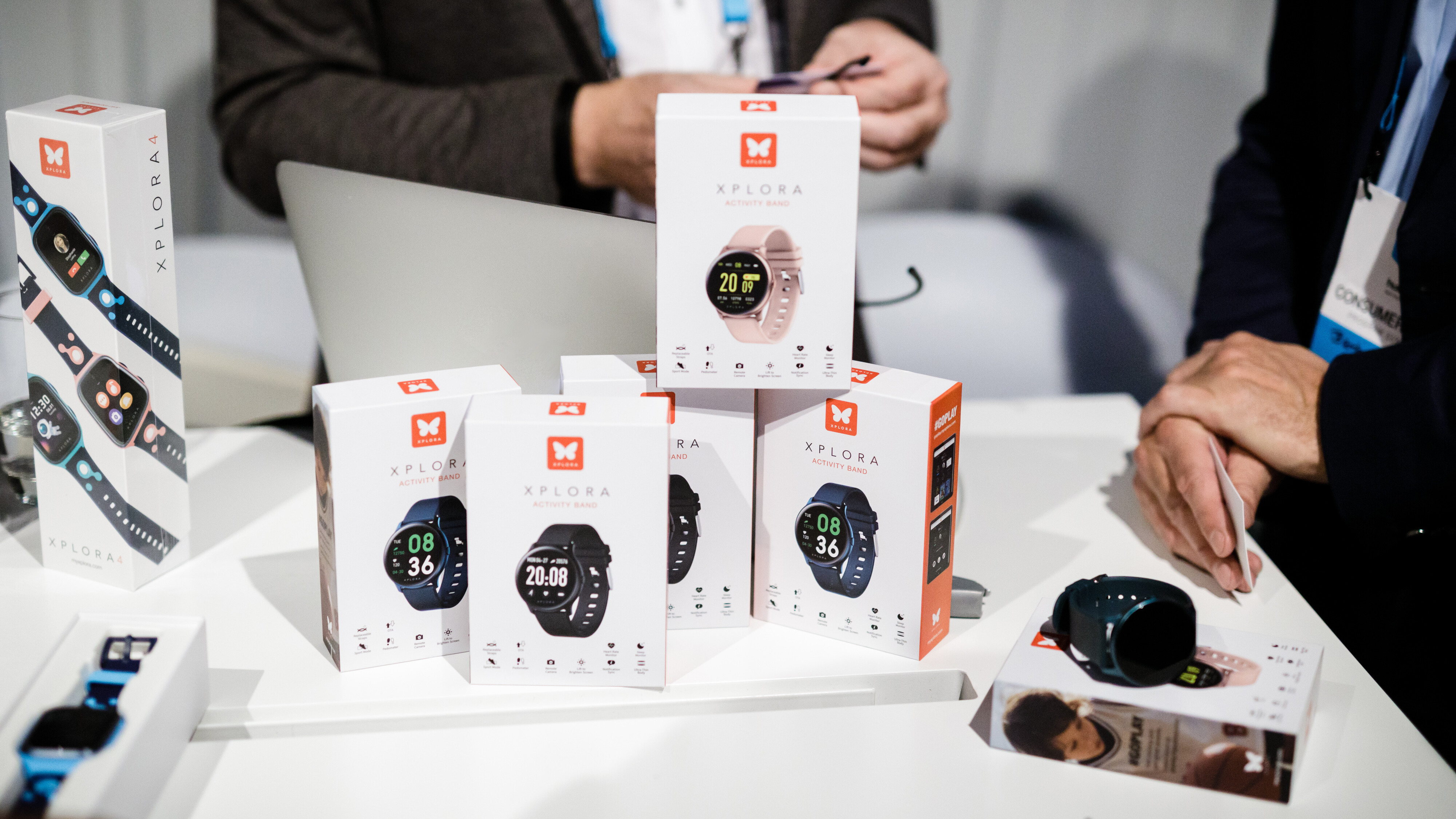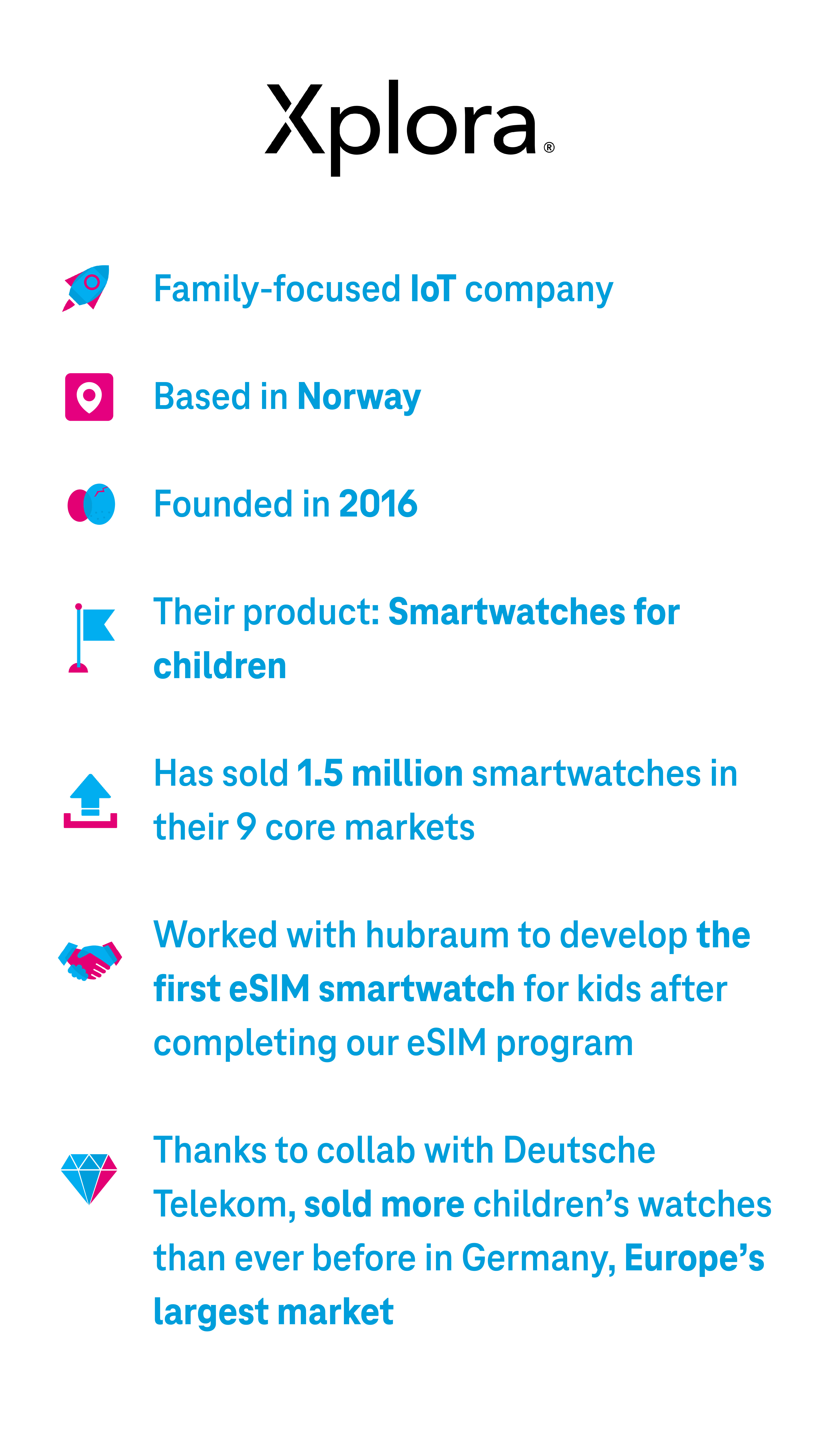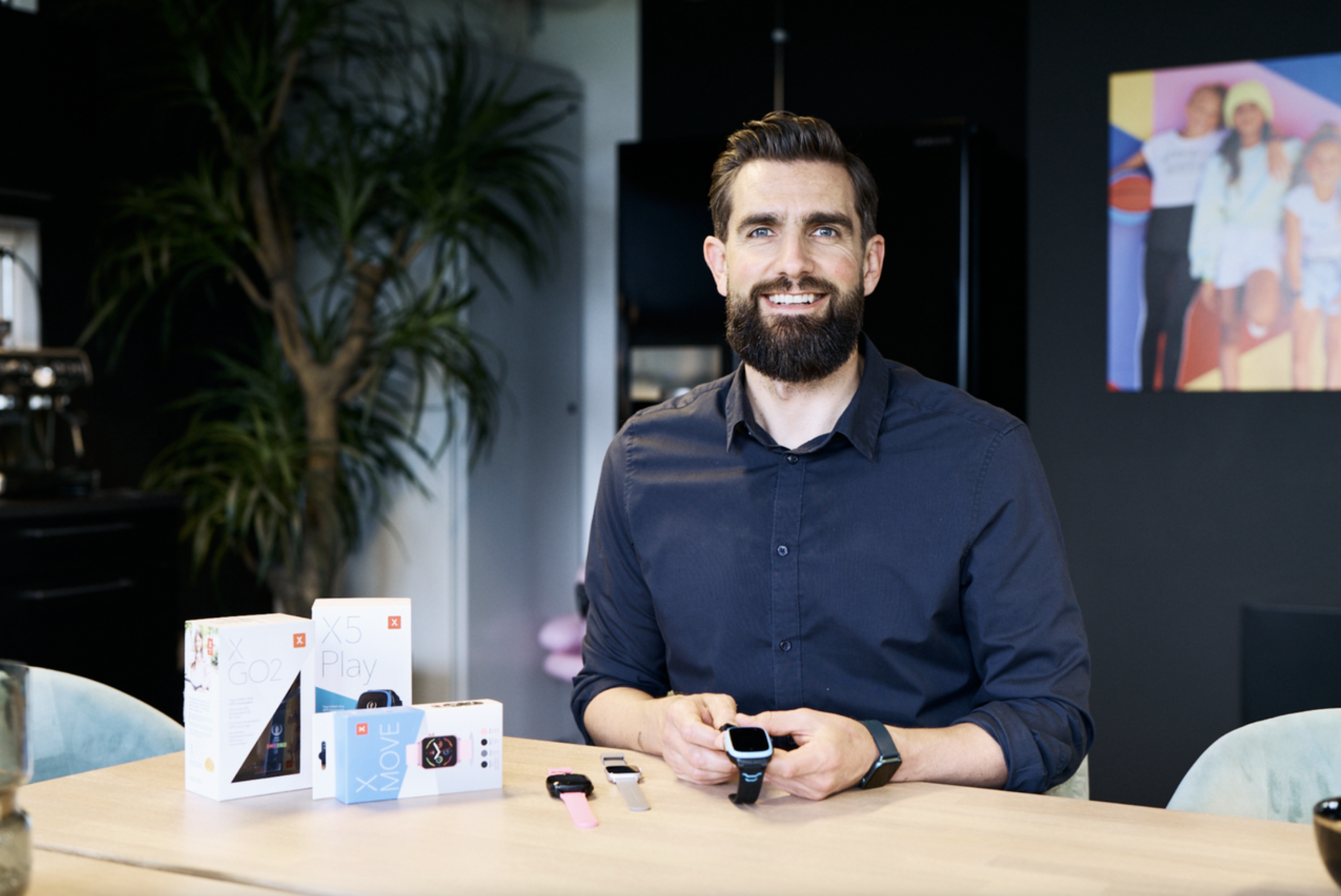We chatted to Sten Kirkbak, the founder and CEO of the company and Sanghyo Kim - Chief Technology Officer, responsible for products, technology and service

Sten:
We want to safely onboard kids to the digital world by providing them with a smart watch with appropriate functionality. We’re addressing two key pain points: one, that parents would like something where they can call and reach kids, but most parents don’t think it’s appropriate for children under ten to have their own smartphones.
Secondly, most parents would like their kids to spend less time in front of screens and more time being active. We took all of the benefits of a smartphone but removed internet and social media access and changed the format to a watch, so it’s connected to you. The watch can be used as a phone, contains a way for parents to locate their kids, and uses a step counter to gamify being more active, so kids are more incentivised to move around more.

Sten:
I’m a father of four boys, and when my youngest was four years old, I managed to lose him in a shopping centre for 20 minutes — this was the worst moment of my life. Given my tech background, I started to wonder: why are fridges and cars connected, but kids aren’t — unless you give them a smartphone, which feels inappropriate for a very young child.
At the moment, kids aged six to seven years old spend an average of six hours a day in front of screens if you look at the cumulative time they spend in front of the television, tablets, screens at school, computers borrowed from parents. That’s way too much! We wanted to revolutionize this space and develop something for kids that would use tech to incentivize more activity and less screen time.

Sten:
hubraum reached out to us about applying for their Consumer IoT eSIM Program in 2019 — this was at a time when we were considering how best to stay ahead of the competition. We had already been thinking about using eSIM, because when we first started making smart watches, we used a nano SIM card and it took up a lot of space — eSIM would enable us to make smaller watches. As a company, we wanted to continue to innovate, but as a startup that comes with a huge cost. When we had this opportunity to innovate with hubraum within this program, that seemed like an intuitively good fit.

Sanghyo:
After applying to hubraum’s innovation program, we were accepted and we were one of five companies in the program that won the opportunity to be developed further by Deutsche Telekom.

Sten:
What we received was something unique: a clear commitment. Normally, when you enroll on a programme, you’re asked to develop a prototype but are left with no guarantees about what happens next. Deutsche Telekom told us if we successfully created a working prototype, they would help us take it to the market. They also gave us R&D funding (approximately 140,000 euros) and we were able to use hubraum’s competence and network and Deutsche Telekom’s infrastructure to develop and test our solution.

Sten:
Once we reached an agreement with Deutsche Telekom that they would launch our product in the German market, that also helped us access significant horizon 2020 funds at our end — we were granted 3 million euros in production support. Sales accelerated in Germany, and we had a proof of concept — that we weren’t just successful in our home market of Norway but that we could also be successful in a huge market like Germany. That accelerated excitement about the company so that we could take the company public and do an IPO (initial public offering) in November 2020. That’s something most startups aspire to.
We also reached out to Oliver Naumann, Partner Manager in Group Partnering and Devices at Deutsche Telekom, for comment — as a mentor he helped support Xplora with business development up until their market launch.

Oliver:
Normally we work with large, established vendors and manufacturers who have already established distribution, after sales and quality assurance processes with Deutsche Telekom. With Xplora, we had to start from scratch, which took a lot of hard work and patience on both sides. Overall, it was challenging, but thankfully our collaboration was built on transparency and trust. We learned a lot from each other.

Oliver:
After working with Xplora over the past few years, we've successfully established the children’s watch as a new and distinct product category, with annual sales of roughly 80,000 units in Germany. This is due to our initial launch of the first kids' watch, our onboarding additional suppliers and the introduction of the first eSIM-enabled kids' watch. Before we introduced Xplora to our customers, we already had children’s watches from other big manufacturers in the portfolio. For the big manufacturers, it was always just a side business with no real dedication to the target group, whereas Xplora is truly passionate about delivering a product that brings joy to children and peace of mind to their parents. The combination of innovation (first children's watch with eSIM) with Xplora’s focus on the youth segment were key for our mutual success.
We later spoke to Andreas Dönges, an innovation transfer manager at Deutsche Telekom, about his time supporting Xplora.

Andreas:
The innovation transfer managers at hubraum are involved from the very first moment of each startup program. They check which units within the DT Group should be involved from a technical or business perspective and contact appropriate experts in their network to see if they would be willing to become mentors for specific startups even before those startups have been accepted on the program. This was also the case with Xplora, which made it easier to involve the experts overseeing our Telekom shops at an early stage by introducing the solution to them and convincing them to integrate the solution into their portfolios.
Interested and want to know more about Xplora? Check out their products here.


